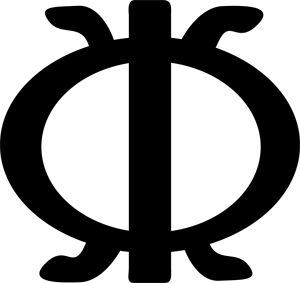About the WaWa Project
The WaWa Project is a US-based non-profit organization providing financial support for educational interventions, to children with disabilities in Ghana, West Africa.
Our goal is to assist in preparing our scholars to be independent thriving members of their communities.
The WaWa Project works with the scholar's parents, schools, and local communities to determine the best plan and pathway to success. Each scholar's plan is different because each student has different goals, aspirations, and visions for their future. Ultimately, a plan for progress and sustainability is what we work towards.
By equipping our scholars with the tools and skills they need to be fully integrated into their community, our ultimate goal is to alter the perceived notion that people with disabilities lead less-fulfilled lives or are less capable of contributing to society.
About the Problem
In much of Ghana, people with disabilities are perceived as severely defective and shunned from mainstream society. Reinforced by lack of diagnosis, awareness and in some cases old beliefs that people with disabilities are cursed, this perception of their inability to contribute to society is widespread. Unable to work or denied an education because of their disabilities, these individuals are either concealed from the public eye by ashamed family members or the very opposite; thrown squarely into the public eye and forced to beg to survive, which only reinforces the pervasive poverty cycle.
To combat this cycle and stereotype, the vision for the WaWa Project was born after a review of existing literature, interviews with healthcare providers, organizations advocating for PWDs, educators, government officials, and direct observations made from speaking with individuals living with physical disabilities in Ghana’s capital, Accra. The WaWa Project is dedicated to empowering people with disabilities through the facilitation of education and life skills training, with the goal of building inclusive and self-sustaining communities.
Fast Facts
In a country of approximately 22 million, the World Health Organization estimates the disability rate in Ghana to be between 7-10 percent, or about 1.55 – 2.2 million people.
The disability rate in the U.S. is about four percent.
After a 13-year debate, the National Disability Policy Document was finally passed by the parliament of Ghana in June 2006.
The disability bill provides for the protection of the disabled against discrimination, guarantees free medical care, free public transportation, access to basic education and requires mandatory special access ramps and rails in all public places.
The new legislation was applied over a transitional period of 10 years due to the large expenditures expected.
On average, it takes about 20 years for a child to complete their education in Ghana.
After kindergarten, the child continues to primary school (U.S. grades 1-6), junior secondary school (U.S. grades 7-9), senior secondary school (U.S. grades 10-12) and then finally university.
Why the Name WaWa?
WAWA is an Adinkra symbol from the Asante people of Ghana. It has been the tradition of the Asante people to wear cloths decorated with Adinkra symbols on important occasions, especially at funerals of family and friends.
The Adinkra symbols expresses various themes that relate to the history, beliefs and philosophy of the Asante and can depict historical events, human behavior and attitudes, animal and plants, or shapes of objects. They often have rich proverbial meaning as proverbs play an important role in the Asante culture and are considered a mark of wisdom.
WAWA ABA literally means the “seed of the wawa tree,” which is a symbol of hardness, toughness and perseverance. The seed of the wawa tree is extremely hard. In Asante culture, it represents someone who is strong and tough, an individual who has persevered through hardship. We’ve chosen this as the name and symbol of this project to represent the obstacles faced and the corresponding success that those living with disabilities can achieve with education, support from their communities, and more opportunities for growth.
